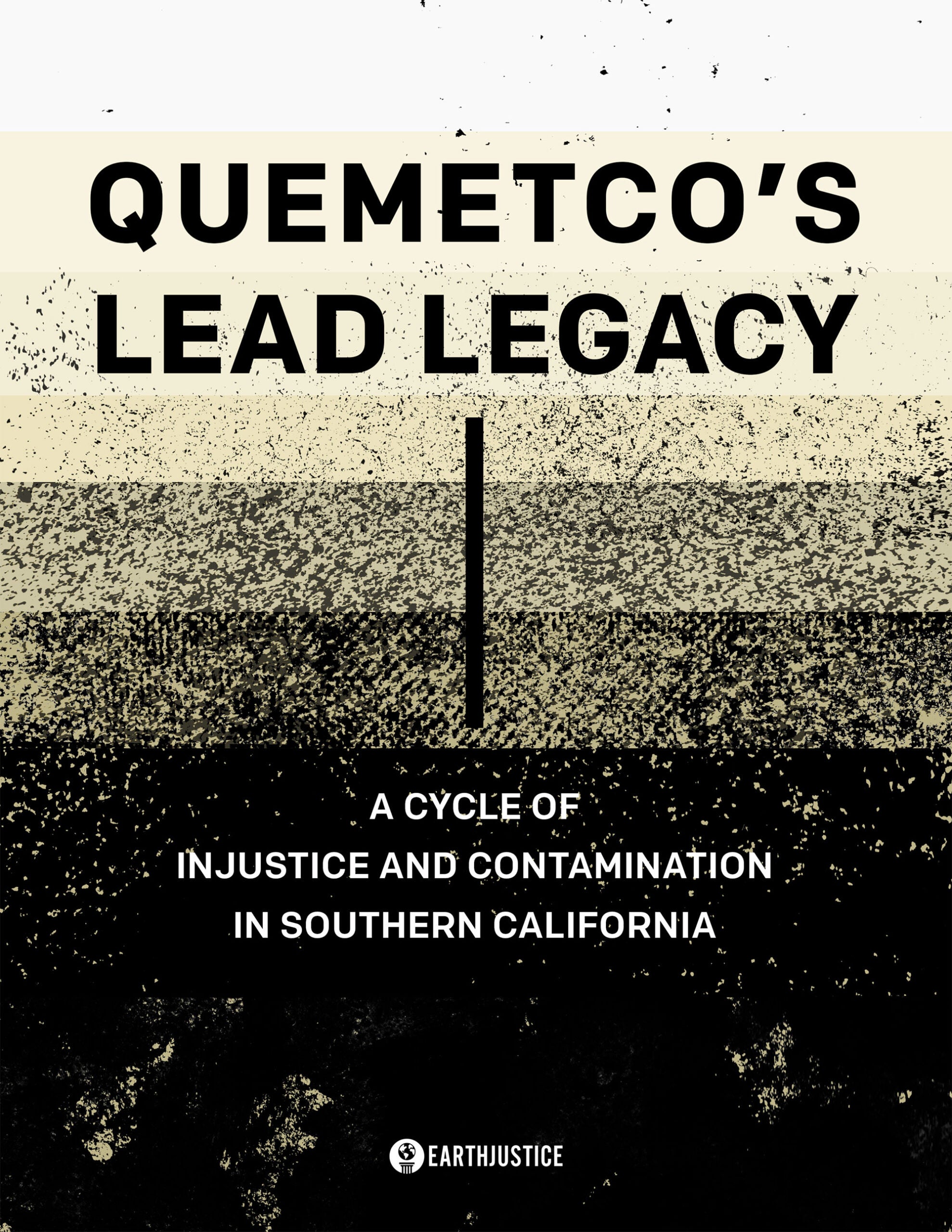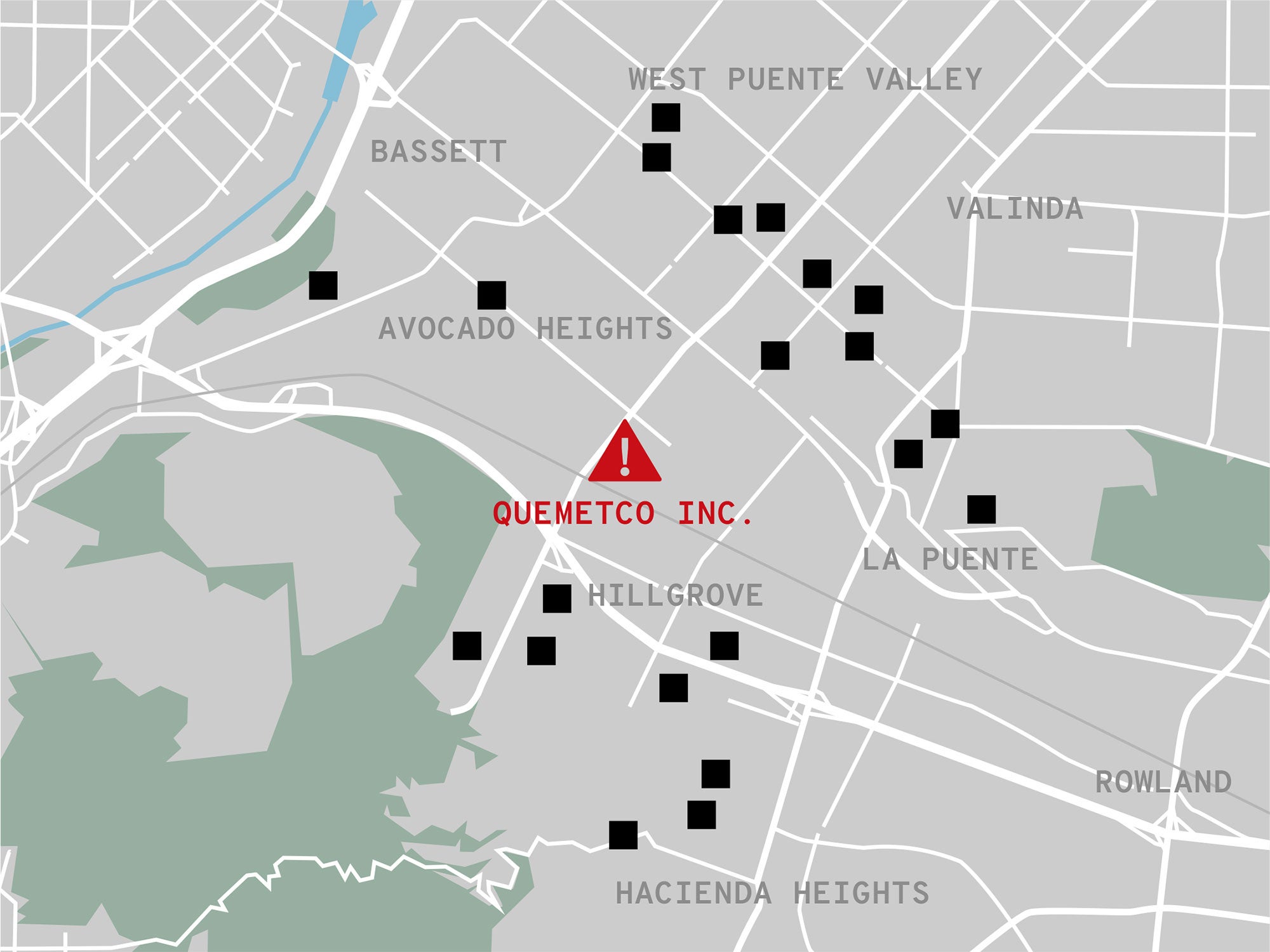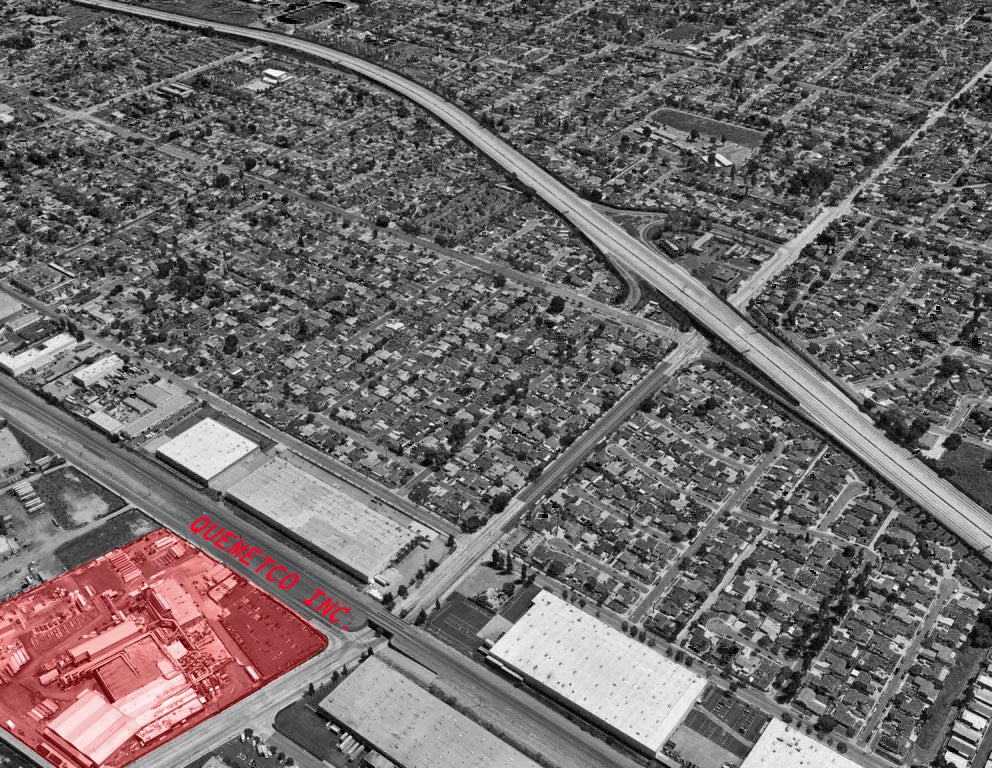January 27, 2021
Quemetco’s Lead Legacy: A Cycle of Injustice and Contamination in Southern California
A report details how Quemetco — the last remaining secondary lead smelter in California — has exploited a failed regulatory structure that does little to protect people and the environment. The report documents the resulting and devastating impacts of hazardous operations at Quemetco that poison the air, soil, water, and surrounding communities.
The Harms of Secondary Lead Smelters
The lead smelting industry is a remnant of a time when people ignored the impacts of lead on human health and the environment.
The process of secondary lead smelting results in the release of harmful compounds, such as arsenic and hexavalent chromium, throughout each step of the process, from crushing the batteries to smelting and refining.
There is no safe level of exposure to lead.
California’s legislators and regulators must stand with community members and fight to end the cycle of failure.
Quemetco is currently seeking approval from the South Coast Air Quality Management District to expand its operations.
Quemetco is also in the midst of the permit renewal process for its long-expired hazardous waste permit with the Department of Toxic Substances Control, a process that has been delayed because of Quemetco’s ongoing failure to provide all of the information necessary to process the permit renewal application.
Community members are opposed to Quemetco’s proposal to increase its operations and instead, demand a focus on advancing the transition that is already taking place away from the use of lead-acid batteries and secondary lead smelters and towards a cleaner future with alternative technologies.
For years, residents have spoken out at meetings and provided testimony about the impacts of Quemetco on their lives.
Richard Kamimura, in 2018:
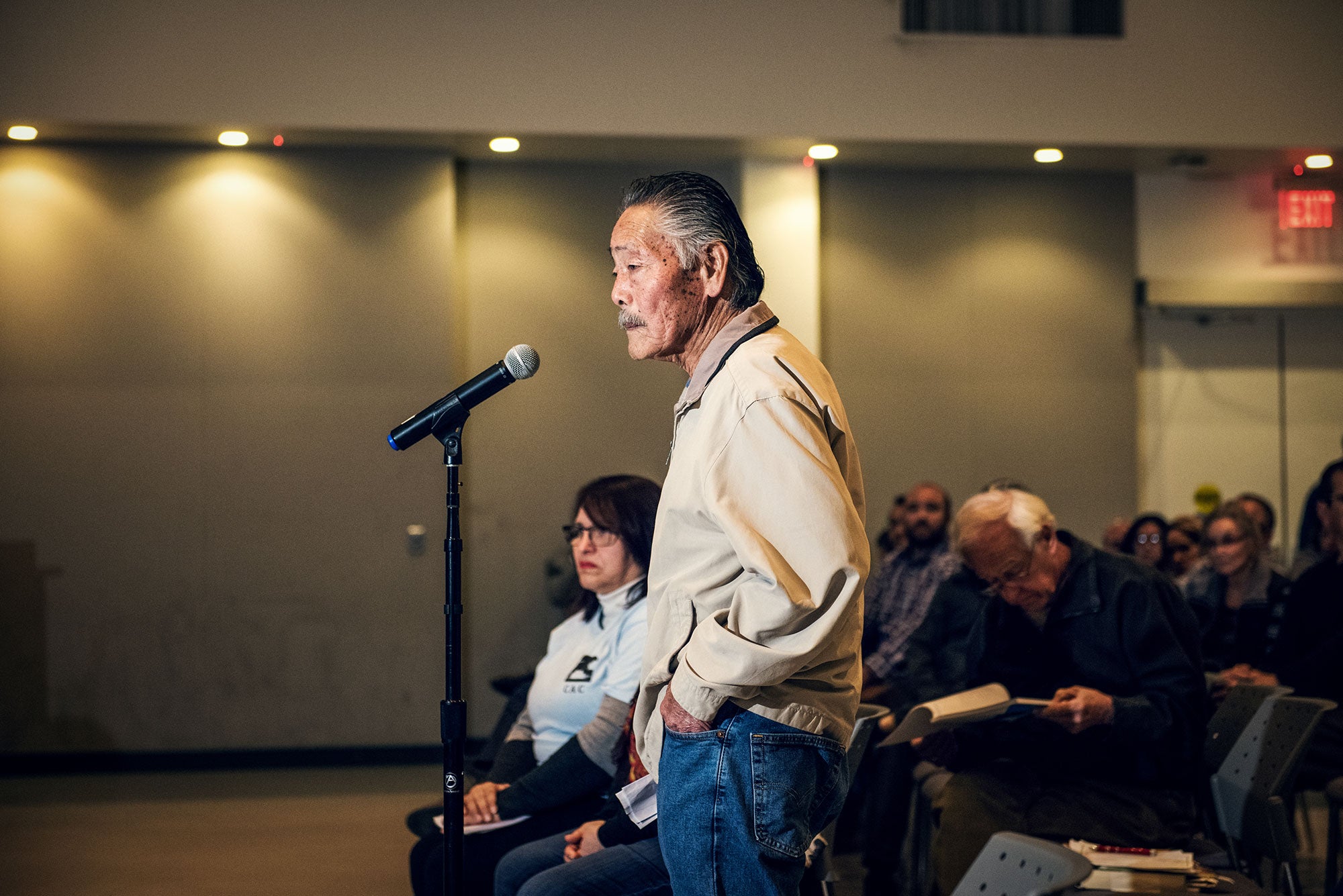
Beatriz Ricarti, in 2018:
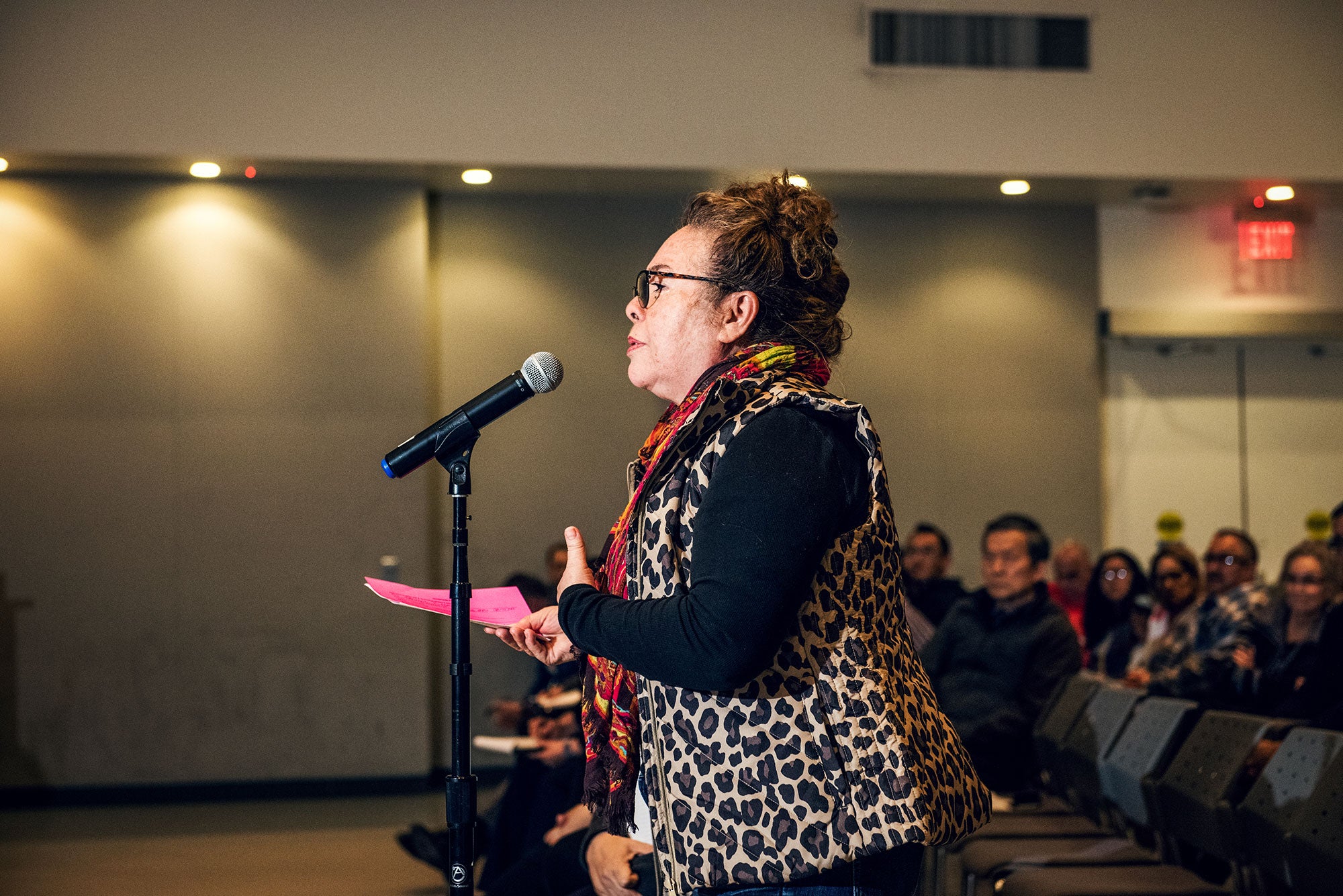
Recommendations
We call on California’s legislative and regulatory bodies to fulfill their oversight duties and hold Quemetco accountable for its historic and ongoing harm to people and the environment.
Legislative Recommendations
- Update the financial assurance provisions to ensure that companies provide enough money to cover the costs of fully cleaning up their contamination.
- Require the Department of Toxic Substances Control to update its regulations regarding the agency’s annual assessment of a facility’s violations. Such assessments must result in meaningful consequences for facilities like Quemetco that have a history of violations and non-compliance.
South Coast Air Quality Management District Recommendation
- Deny Quemetco’s currently pending expansion request.
Department of Toxic Substances Control Recommendations
- Deny Quemetco’s application to renew its hazardous waste permit.
- Establish a process and timeline to shut Quemetco down and develop a comprehensive clean-up plan.
The Report
Human Health and Environmental Harms of Secondary Lead Smelters
- Lead Is Not The Only Toxic Compound
- Harm to Workers and Their Families From Secondary Lead Smelter Operations
Quemetco’s Cycle of Non-Compliance
Harmful Legacy of Secondary Lead Smelters
- Financial Assurance
- Legacy of Contamination
- Case Study: RSR Corporation, West Dallas, Texas
- Case Study: RSR Corporation, Middletown, New York
Appendix A: Timeline 0f Quemetco’s History
Appendix B: Quemetco and the Violations Scoring Procedure
Appendix C: Quemetco’s VSP Score
This report was written by Lisa Fuhrmann, Sr. Research & Policy Analyst, with input and assistance from Byron Chan, Senior Associate Attorney; Lupe Ruelas, Litigation Assistant; Erica Martinez, Policy Advocate; and Angela Johnson Meszaros, Managing Attorney, with Earthjustice’s Community Partnerships Program.
This report was written in partnership with the Clean Air Coalition of North Whittier & Avocado Heights.
Media Inquiries: cpp@earthjustice.org
Earthjustice’s Community Partnerships Program works hand-in-hand with frontline communities fighting for a safe, just, and healthy environment.
